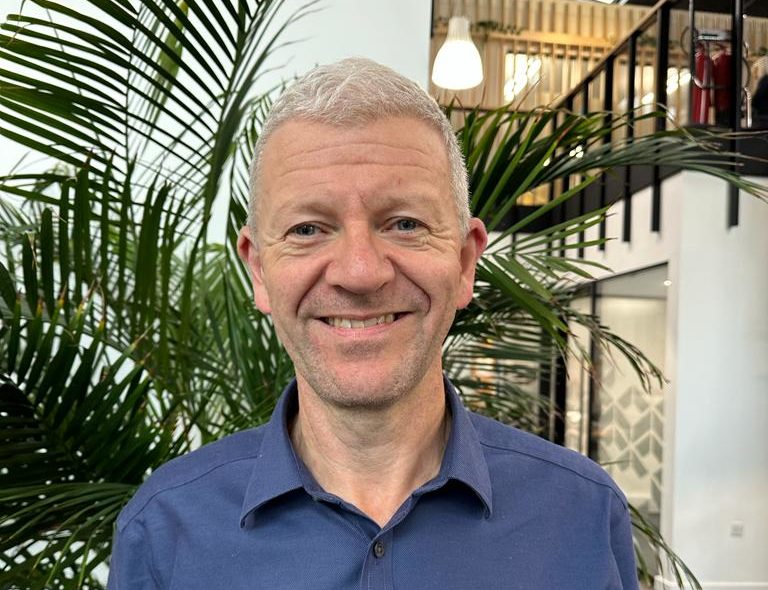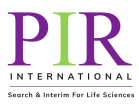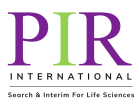Chief Executive Offer, Imophoron (November 2023)

Richard was appointed as Chief Executive Officer of Imophoron in November 2022. Formerly, he was Chief Executive Officer of AIM-listed Diurnal Group plc, where he led the sale of the company to Neurocrine Biosciences in October 2023. He has over 25 years’ experience in senior roles in the biotechnology and pharmaceutical sectors, including as CFO & COO at Mereo Biopharma and CEO of Chroma Therapeutics. Richard has been involved in fundraisings totalling over $250 million, along with the negotiation and execution of multiple business development deals. He also has extensive experience of taking novel drugs from research through to clinical development and commercialisation and has been involved with the development of six currently marketed drugs, including three novel biological agents. Richard qualified with Deloitte as a Chartered Accountant and has a First Class degree in Chemistry from Nottingham University. He is also a Non-executive Director of AIM-listed Cambridge Cognition and its spin-out Monument Therapeutics.
Key milestones in your career journey to date?
- Following an early career in finance with Deloittes and Celltech, I then had two years with AstraZeneca as FD of one of the therapy areas; where I encountered charismatic corporate personalities. Learning to navigate that environment has stood me in good stead ever since.
- I returned to Celltech in 2000, and moved away from finance to Head of Corporate Communications and Strategic Planning; working closely with 28 analysts who were watching the company. That network remains relevant today.
- I was fully involved in my first major corporate M&A when Celltech was sold to UCB in 2004.
- My first board level role as CFO followed at Chroma, with greater exposure to operations; becoming CEO in 2012; and remaining as NED when I left in 2014.
- Joining Mereo BioPharma as CFO/COO presented the opportunity for another first; an IPO on LSE in 2016.
- The next significant move was to Diurnal in 2017, initially as CFO. It was a challenging time for the company during which I honed my ‘shareholder management’ skills. Ultimately, I took on the role of CEO with the brief to sell the company which I achieved in 2022, to Neurocrine, at a handsome premium. Financials apart, I remain delighted at the culture fit between the two organisations.
- Now CEO of Imophoron, the attractions were many; early stage, strong investors, great science, respected academic origins and moving towards the clinic, using all my skills but also some challenges to navigate.
- My two Board roles with Monument and Cambridge Cognition provide balance; always being mindful about how to effectively engage with Board members.
Who has had the greatest influence over your career?
- My Dad, who was a traditional printer, had the foresight to see how technology would impact his industry. He bought an Amstrad machine to teach himself about this ‘new world’. The mindset of anticipating and embracing change was instilled in me from an early age.
- Peter Allen (Celltech, Chroma & Diurnal). Experiencing his ability to remain calm, take the heat out of a situation, look through problems and cut to the chase were invaluable in developing my skillset as a leader.
- Ian Nicholson (Celltech & Chroma); Ian encouraged me to develop my soft skills; his ability to put people at their ease, earn their trust and take people with him and light up a room is a masterclass to behold.
What top three attributes make an outstanding and relevant leader in today’s world?
- Empowerment: encouraging the freedom to grow and stretch beyond comfort zones in a supportive environment.
- Humility: creating a culture where colleagues are comfortable pitching their ideas and identifying solutions; acknowledging that the CEO is not infallible; working amongst the team underpins this.
- Integrity: doing the right thing starts at the top and positively aligns the culture.
Describe your approach to identifying and developing high performing teams
- There is no template for this. It’s the challenge of matching the needs of the business with the skills and aspirations of individuals to create a cohesive, effective team.
- Seeing people as individuals and supporting them in pursuit of their personal development plans; while acknowledging teams evolve and need change; recognising when an individual and organisation have outgrown each other is healthy for all involved.
How does your company meet the challenges of leading a multi-generational workforce?
- Covid highlighted and increased the dialogue around how different needs are accommodated; working together to find flexible solutions; understanding regular face to face contact is hugely beneficial.
- Recognising that each generation has different expectations for a work life balance from which we can all learn.
Tell me something about your company that you would like to share with the PIR community
- Imophoron has created a phenomenal next generation vaccine technology platform, ADDomer; its intrinsic thermostability is unique. This creates huge possibilities for managing global health issues in both the developed and developing world, particularly where there is no cold chain. ADDomer also opens the possibility to address multiple infectious diseases with a single particle. Our technology could also be applied to generate cancer vaccines.
- We have high ambitions for a company that is currently nine people!
How has your company created a more diverse culture in recent years; and what do future challenges look like?
- Whenever a company hires, it should seek to use that opportunity to rebalance the cultural diversity across ethnicity, gender, age and experience.
- Imophoron shares the services of two young PhDs with the University of Bristol; their minds are not tethered by experience which is refreshing for the rest of the team.
- I personally witnessed the impact of appointing the first female NED at Diurnal; whose approach improved the dynamic of the Board significantly.
The provision of flexible working and employee wellness support are increasingly important in the retention and attraction of key talent. How are these being managed by your company whilst ensuring that productivity targets are met?
- Managing the disparity of flexible working opportunities, for example, between the lab and the office, is important to acknowledge; a buddy system via WhatsApp is a great way to ensure the visibility of the working patterns of the lab based team members.
- Leadership should continually find ways to meet business objectives whilst enabling colleagues to achieve personal balance; encouraging and supporting teams in new ways of working.
- Having regular socials can help with team building; a recent ‘Cook Off’ in a community kitchen was very successful.
What will be the biggest technological transformation in your sector over the next 5 years?
- Machine Learning and AI will ensure we can manage greater volumes of data more effectively and grow the Industry success rate of discovering new therapies.
- Computational tools underpinned by machine learning will help Imophoron accelerate vaccine design and development.
What is your hidden talent or something that might surprise others about you?
- I am a guitarist and played in a band until my early 30s and still find great escape by having a strum!
What advice would you give your 23-year old self?
- Stay open minded and seize opportunities.
- Believe in yourself and trust your instincts.
- Take time to enjoy yourself.
Words of Wisdom?
- Best Advice I was given:
- Focus only on what you can change.
- Advice I’d give:
- People can hear/interpret things differently; ensure there is clarity and understanding of key messages to minimise misunderstanding.
- Never assume anything; assumption is the mother of all cock ups!
- What I wish I’d known:
- It’s okay to take risks. It’s often riskier to maintain the status quo.

